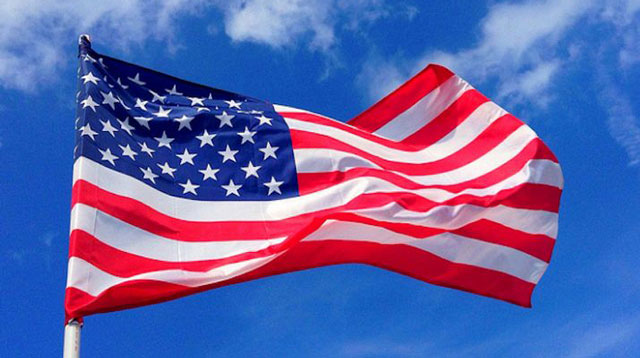
How there is an increasing reliance on war and sanctions as the main instruments of Western foreign policy
THE LAST WORD | Andrew M. Mwenda | Western nations are facing a foreign policy crisis. This is especially so with the United States and her poodle, the United Kingdom. Since 1991, they have increasingly abandoned diplomacy as an instrument of foreign policy. Instead, they have steadily grown to rely on blunt instruments such sanctions and war as the main tools in seeking to influence the behavior of other nations. Since the early 1990s, the U.S. has imposed nearly 70% of all sanctions in the world targeting countries, entities and individuals.
Yet, while the U.S. targets so many countries, individuals and entities for very minor transgressions, it has never sanctioned Israel. This is despite her brutal apartheid regime in Gaza and the West Bank that clearly goes against America’s self-proclaimed values. Indeed, Israel’s ongoing genocide in Gaza is a classic case of American hypocrisy. The U.S. is today the largest supplier of arms and munitions Israel uses to massacre Palestinian babies. It has also acted as the arsenal of Israel, protecting her from censure in the United Nations Security Council, thereby giving Tel Aviv a right to impunity.
As I write this article, the U.S. has comprehensive sanctions (total economic blockade) against Cuba, Iran, Russia, North Korea, Syria and Ukraine provinces of Donetsk, Luhansk and Crimea. It has imposed targeted sanctions on Central Africa Republic, Libya, Ethiopia, DRC, Belarus, Hong Kong, Iraq, Lebanon, Myanmar, Mali, Nicaragua, South Sudan, Somalia, South Sudan, Yemen, Zimbabwe, West Bank, Sudan and the Western Balkans. Then it has sanctions against individuals in China, Afghanistan, Cambodia and Eritrea and sanctions targeting individuals and entities in Italy, Japan, Haiti, Cyprus, Burundi, and Mexico. If we add individuals and entities, the list now goes into tens of thousands. Why?
Yet leaving the obvious hypocrisy on Israel aside, it remains intriguing that the U.S; a liberal democracy whose political system depends on negotiation and compromise at home, seeks to rely on coercion and intimidation in international affairs. No country has wielded the veto in the UN security council more than America – and almost always on behalf of Israel. No wonder Tel Aviv is incentivised to commit horrible crimes against humanity including genocide assured of U.S. protection and patronage. This is abuse of power 101 and yet Washington remains deaf to international opinion.
It is very difficult to see how much positive change these sanctions have brought in the affected countries. Instead, evidence shows that the costs of sanctions and war have been borne by the very people America claims to be fighting for. From Cuba to North Korea, Iraq, Afghanistan, Libya and Zimbabwe, it is hard to see how the poor and vulnerable in those countries have profited from America’s economic sanctions and war. Instead, the main targets of sanctions, the “regimes” America seeks to punish or topple, have everywhere consolidated in large part because of the approach America has employed.
Indeed, I am inclined to believe that if America had not imposed an economic blockade on Cuba, it was highly probable that the Castro brothers would not have consolidated power as they did. Continuous economic intercourse with America could have brought prosperity to that island. With exposure to U.S. culture and ideas, it is possible that many prosperous Cubans would have done what their counterparts in South Korea did – fight with a winning chance in the struggle for liberty and democracy. This is the mistake the Americans, the British and their European allies made in Zimbabwe.
You can only exercise influence in the country where you have deep economic intercourse. Take the example of Egypt. In 2011, the U.S. was able to get President Hosin Mubarak out of power because of its strong economic ties with the Egyptian army. The Egyptian military come second to Israel in receiving American financial aid. That is what buys Washington a lot of influence in Cairo. U.S. officials called top army generals in Egypt and colluded with them to get Mubarak out of the way. South Korea democratised because its industrialisation, built on exports to America, led to the importation of American ideals into that East Asian country. Same for Taiwan.
The U.S., the UK and their European allies should take a leaf from this experience in their response to Uganda’s barbaric Anti Homosexuality Act (AHA). For as long as most of Uganda remains poor, rural and therefore traditional and religiously conservative, homophobia will remain common currency. Democracy will tend to increase it, not reduce it. But economic prosperity and intellectual exchange between Uganda and the West will lead to increasing cultural intercourse. Only this will make our elites grow more open-minded. I defend gay rights because of my education and time spent in the West. This means the West need to increase cooperation with Uganda not despite the AHA but because of it.
Threats of sanctions and travel restrictions on Ugandan elites only make them angry, feeling there is an attempt by the West to impose its culture on our people. And once people are angry, they develop a very punitive mindset. They don’t calculate the costs and consequences of their actions. So, they indulge in very risky behavior. I saw this with Brexit and the election of Donald Trump in 2016. In Brexit, angry voters were immunised against the fear that the economy would suffer if they voted LEAVE. Many people were willing to let the economy suffer if this meant punishing out-groups like metropolitan liberals and immigrants. Attempts by REMAIN to sell fear of the consequences of leaving the EU fell on deaf ears.
This same thing is playing in Uganda. Almost all Ugandan anti-gay elites I talk to feel the economy should suffer if only to stand up for “our traditional values.” What then is the purpose of visa restrictions and sanctions? They do not incentivise anyone to change their views. Instead, people just dig deeper into their bigotries. Then homophobia becomes an identity, and a badge of honour which politicians carry to prove their credentials as champions of our traditional and religious values. Never mind most of them steal from the public till, cheat on their spouses, lie to their friends, envy their colleagues, all of which go against the Ten commandments. Ironically homosexuality is not one of the Ten commandments. Surely if God felt it was such a top priority, he would have added it there.
The lesson is simple but fundamental. Power corrupts and absolute power corrupts absolutely. The West is powerful. Power has corrupted it absolutely.
*****

amwenda@ugindependent.co.ug
 The Independent Uganda: You get the Truth we Pay the Price
The Independent Uganda: You get the Truth we Pay the Price



I guess the question is: why should America’s sanctions have a devastating impact on any country? Why can’t the countries build capacity and wean themselves of America? Don’t blame America. Blame the leaders that make their countries very weak and dependent on the US.